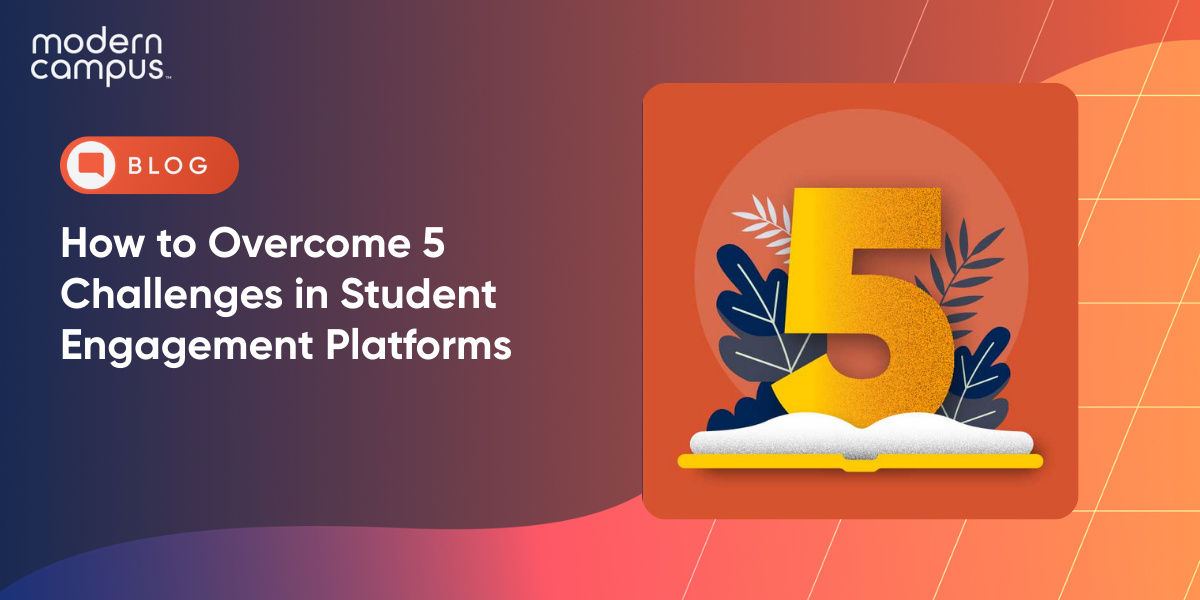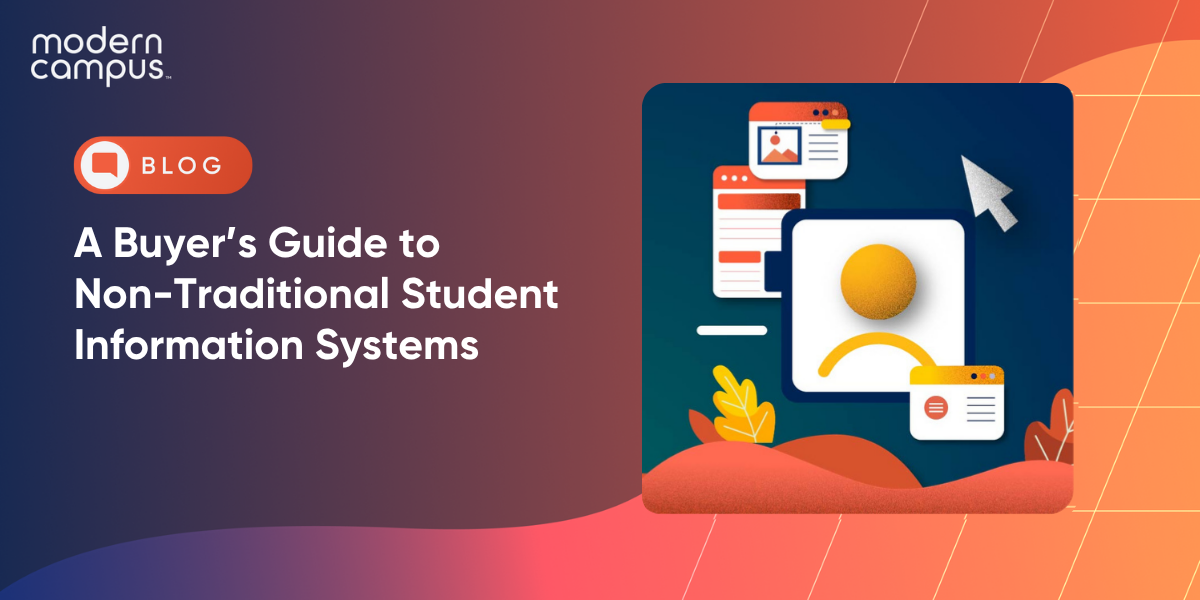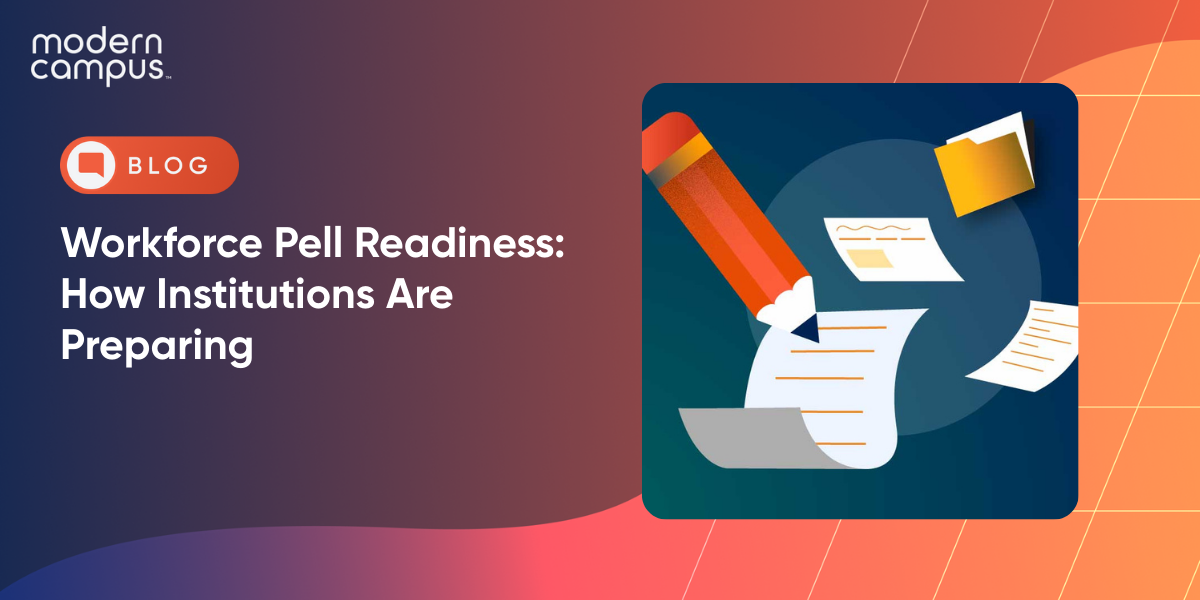How to Promote Co-Curricular Learning in Higher Ed
Co-curricular activities are essential for student success and institutional retention goals.
- Students attending co-curricular events are more likely to persist to the next academic year.
- First-year students with volunteer hours achieve higher retention rates.
- National retention rates have reached their highest point in a decade, with engaged students driving success.
- Institutions must strategically design programs that connect classroom learning to real-world applications.
Focus on technology-enhanced co-curricular programs that provide measurable engagement data while supporting diverse learning pathways and career readiness goals.
Supporting students requires more than helping them earn good grades. Institutions invested in student success must strategically promote engagement outside the classroom through well-designed co-curricular activities. These programs are vital to higher education, offering students opportunities to develop essential skills, build meaningful relationships and enrich their personal and professional growth.
Persistence and retention rates have reached their highest levels in over a decade, with 76.5% of students continuing their education from one year to the next. The correlation between co-curricular engagement and these improved outcomes is undeniable.
Here are evidence-based examples of co-curricular activities in higher education that can help students develop essential skills while increasing persistence and retention rates.
What's the Difference Between Co-Curricular and Extra-Curricular Activities?
Understanding the distinction between co-curricular and extracurricular activities is fundamental to designing effective student engagement strategies. While these terms are often used interchangeably, they represent different approaches to student development.
Co-curricular activities are designed to complement and enhance academic learning. The prefix "co-" means "together," indicating these programs work alongside the formal curriculum to reinforce classroom concepts through practical application. Co-curricular programs directly connect to academic subjects and may even offer course credit or fulfill degree requirements.
Extracurricular activities, by contrast, occur outside the academic curriculum without direct ties to coursework. The prefix "extra-" means "beyond" or "additional," encompassing voluntary pursuits like recreational sports, hobby clubs, and social organizations that contribute to personal development but don't necessarily reinforce academic learning.
|
Aspect |
Co-Curricular Activities |
Extracurricular Activities |
|
Purpose |
Enhance academic learning |
Personal growth and recreation |
|
Connection to Curriculum |
Direct relationship |
Independent of coursework |
|
Examples |
Internships, service learning, academic competitions |
Sports teams, hobby clubs, social organizations |
|
Assessment |
May include academic credit |
No academic evaluation |
|
Career Impact |
Directly supports workforce readiness |
Develops soft skills and interests |
Both types of activities offer important benefits for personal growth and can positively impact student success. Research from Ohio State University demonstrates that highly involved students are 2.6 times more likely to feel part of the campus community and 1.9 times more likely to be satisfied with their experiences.
Why Do Co-Curricular Activities Matter for Student Success?
Co-curricular programs serve as essential bridges between classroom theory and real-world application, extending learning beyond traditional academic boundaries. These activities provide multiple benefits that contribute to both immediate academic success and long-term career readiness.
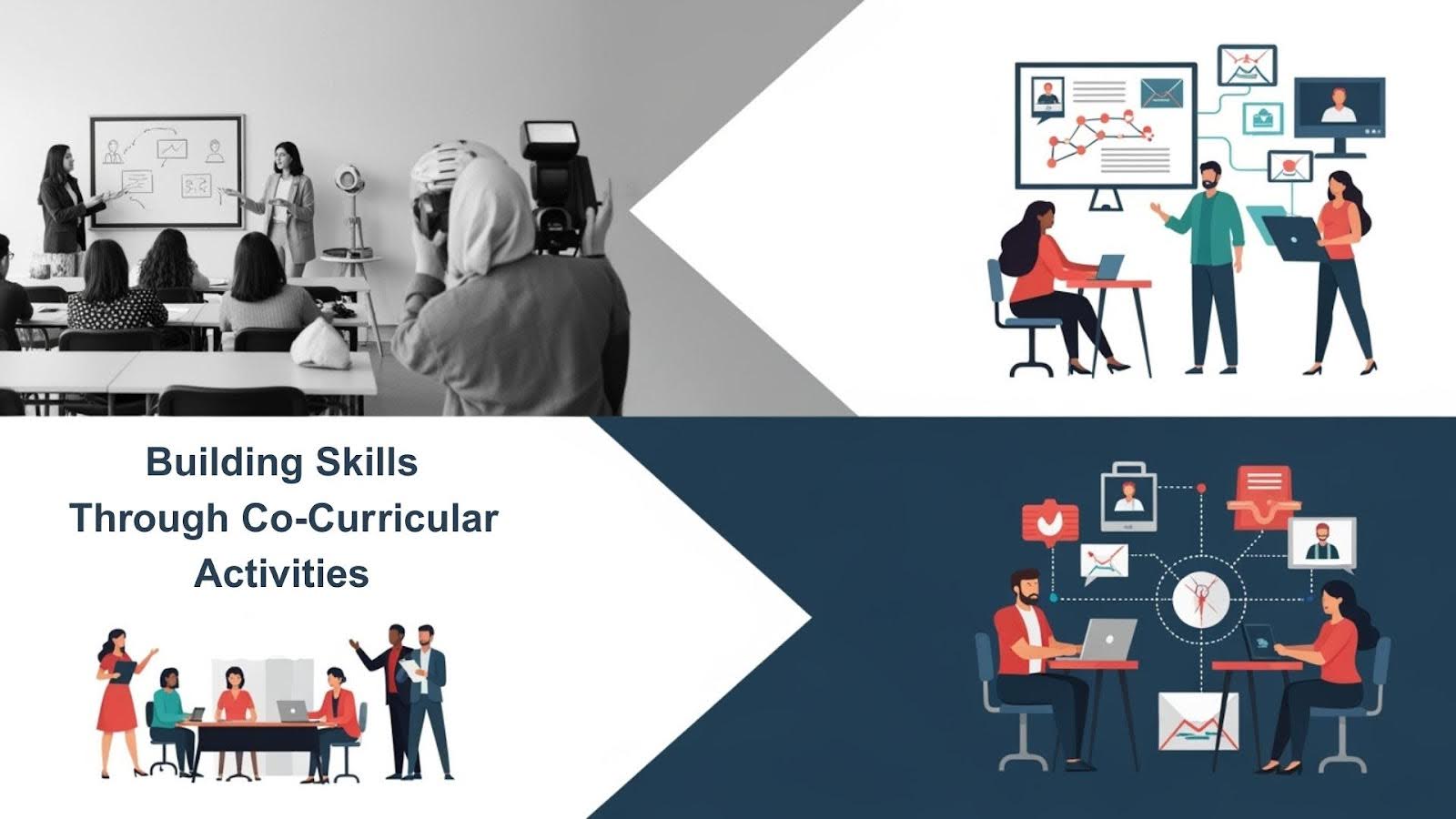
Academic Performance Enhancement: Co-curricular experiences help students grasp complex concepts by applying theoretical knowledge in practical situations. Students who participate in relevant co-curricular programs demonstrate stronger academic performance and improved critical thinking abilities.
Essential Skill Development: These programs provide structured opportunities for students to develop communication, teamwork, leadership and time management skills that employers consistently rank among the most valuable qualifications for new graduates.
Professional Network Building: Engaging in co-curricular activities connects students with peers, faculty and industry professionals. These relationships often lead to internship opportunities, job referrals and mentorship connections that prove invaluable throughout their careers.
Increased Motivation and Engagement: Students who participate in co-curricular programs report higher levels of educational satisfaction and are less likely to experience academic burnout. This sustained engagement directly correlates with improved retention rates.
Enhanced Employability: According to NACE's Job Outlook 2025 survey, nearly 90% of employers seek evidence of problem-solving abilities on resumes, and more than 80% look for strong teamwork skills, competencies that co-curricular activities directly develop. These experiences demonstrate initiative, versatility and commitment to professional development.
Data from multiple institutions confirms these benefits. Purdue University students who actively participate in at least one student organization maintain GPAs that are 0.11 points higher than their non-participating peers.
6 Proven Co-Curricular Activities That Drive Student Success
To maximize engagement among diverse student populations, colleges and universities should offer comprehensive co-curricular programming that addresses various interests and career goals. Here are six evidence-based examples that consistently produce positive outcomes:
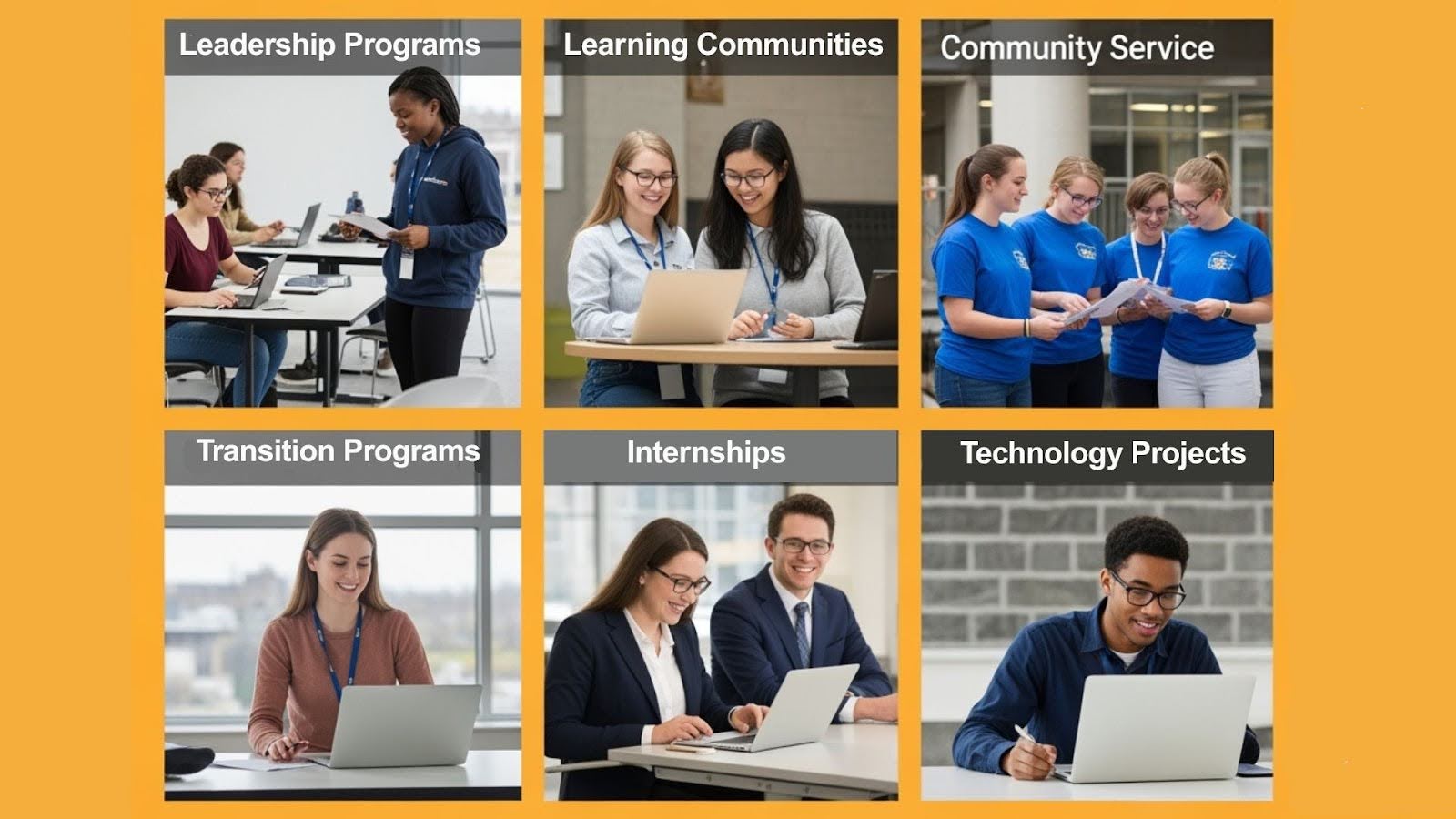
1. Internships and Professional Field Experiences
These opportunities allow students to apply classroom knowledge in professional settings while gaining practical experience in their chosen fields. Internships help students become more competitive by building professional networks, developing job-ready skills and enhancing their resumes with relevant experience.
Modern internship programs include virtual experiences, project-based partnerships and micro-internships that accommodate students' varying schedules and circumstances. Clinical placements, research assistants and cooperative education programs offer hands-on learning in specialized environments.
2. Service Learning and Community Engagement
Service-learning programs combine community service with academic instruction, emphasizing critical thinking and civic responsibility. Students participate in organized activities that address community needs while enhancing their understanding of course content and social issues.
These programs may include educational tutoring, nonprofit technology support, environmental sustainability projects or public health initiatives. Service learning helps students develop social responsibility while gaining valuable experience that informs their career trajectories.
3. Learning Communities and Living-Learning Programs
Learning communities bring together students who share common academic interests, career goals or residential arrangements. These programs create supportive environments that promote collaboration, peer mentoring and deeper academic engagement.
Students in learning communities benefit from shared study environments, specialized programming and increased interaction with faculty mentors. Participants demonstrate higher retention rates and stronger academic performance compared to students in traditional residential or commuter arrangements.
4. First-Year Seminars and Transition Programs
First-year seminars help new students navigate the transition to higher education through small, discussion-based classes focused on academic and social expectations. These programs introduce students to effective study habits, campus resources, career exploration and financial literacy.
Topics typically include goal-setting, time management, academic integrity and mental health awareness. Students who complete first-year seminars show improved persistence rates and stronger connections to their institutions.
5. Leadership Development and Mentorship Programs
These programs cultivate students' leadership capabilities through workshops, practical experiences and mentoring relationships. Participants develop essential business skills, gain confidence and learn to effectively navigate professional environments.
Leadership programs may include student government participation, peer mentoring roles, organization officer positions or community leadership projects. These experiences help students build the competencies that employers consistently seek in new graduates.
6. Technology-Enhanced Collaborative Projects
Modern co-curricular programs increasingly incorporate digital tools and platforms that prepare students for technology-driven workplaces. These projects might include app development competitions, digital marketing campaigns for local businesses or virtual reality experiences that simulate professional environments.
Students gain experience with industry-standard software, develop digital communication skills and learn to collaborate in remote or hybrid settings. These programs particularly benefit students entering technology-focused career fields.
How Can Institutions Design Effective Co-Curricular Programs?
Creating impactful co-curricular programs requires considering student needs, institutional resources and measurable outcomes. Successful programs share several key characteristics that maximize student engagement and learning outcomes.
Align Programs with Academic Goals: Design activities that complement specific majors and career pathways. Programs should reinforce classroom learning while providing practical applications that enhance students' understanding of their chosen fields.
Set Clear Learning Objectives: Whether focusing on skill development, professional networking or civic engagement, well-defined goals help ensure activities meet students' developmental needs and contribute to their overall educational experience.
Provide Structured Support and Mentoring: Students benefit from guidance in selecting programs that align with their interests and career aspirations. Faculty and staff mentors help students maximize their co-curricular experiences and connect them to relevant opportunities.
Encourage Gradual Exploration: Allow students to sample different activities before making substantial commitments. This exploratory phase helps students identify programs that genuinely interest them and are likely to lead to sustained engagement.
Leverage Technology for Enhanced Engagement: Digital platforms can streamline program management, track student participation and provide personalized recommendations based on student interests and academic programs. Technology also enables virtual participation options that accommodate diverse scheduling needs.
Measure and Document Impact: Institutions should track participation rates, skill development outcomes and the relationship between co-curricular engagement and academic success. This data supports program improvement and demonstrates value to institutional leadership.
What Role Does Technology Play in Modern Co-Curricular Programming?
Technology has transformed how institutions design, deliver and measure co-curricular programs. Digital platforms enable more personalized experiences, better tracking of student engagement and expanded access to opportunities that might otherwise be limited by scheduling or location constraints.
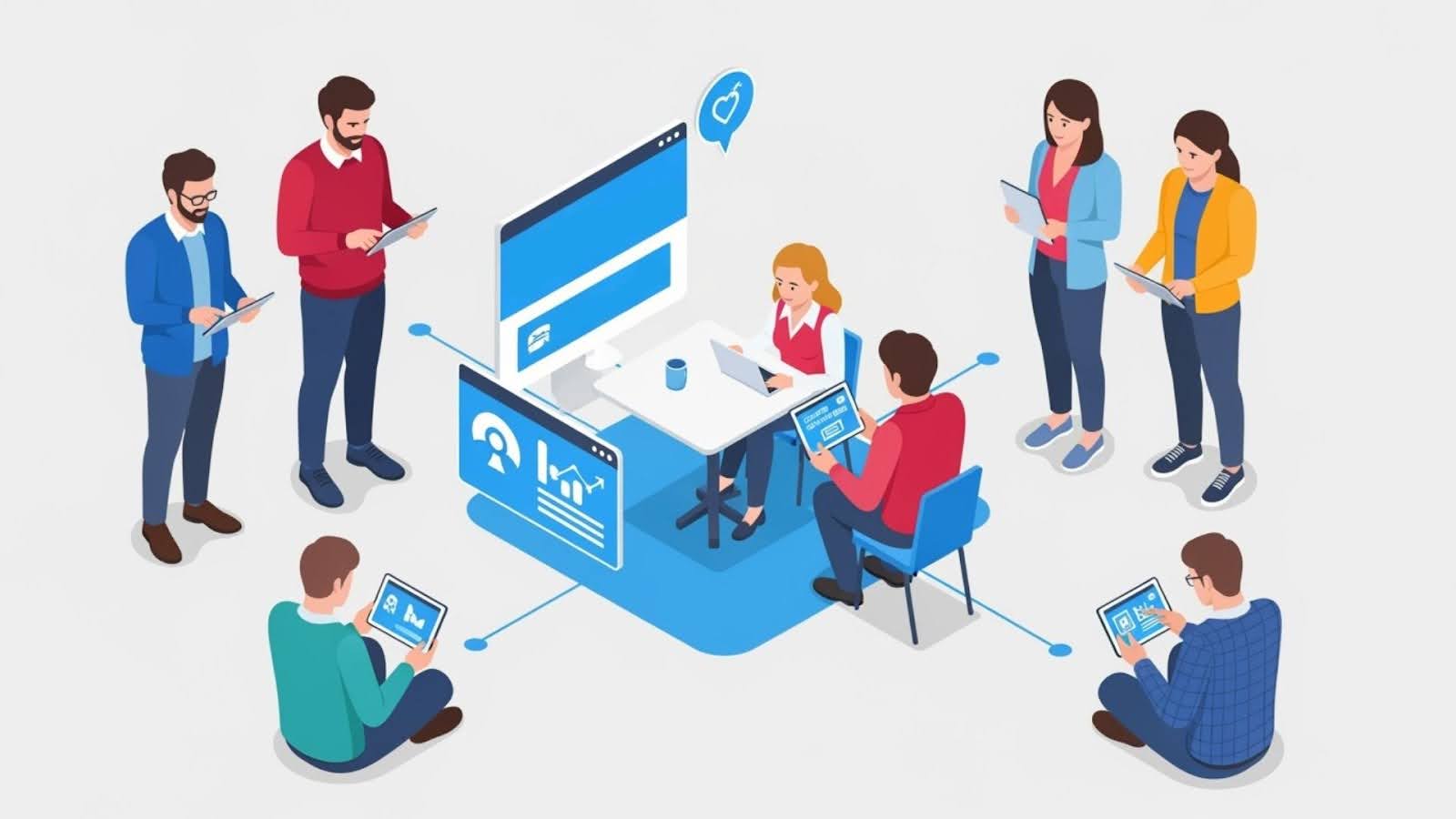
Personalized Program Recommendations: Advanced platforms can analyze student interests, academic programs and career goals to suggest relevant co-curricular opportunities. This personalized approach increases participation rates and ensures students engage in activities that align with their development needs.
Streamlined Registration and Management: Digital systems simplify the process of discovering, registering for and managing co-curricular activities. Students can easily browse options, track their participation and document their experiences for future reference.
Enhanced Communication and Engagement: Modern communication tools enable institutions to deliver timely, relevant information about co-curricular opportunities directly to students through their preferred channels. Automated messaging systems can send personalized reminders, event notifications and progress updates.
Comprehensive Analytics and Reporting: Technology platforms provide detailed insights into student participation patterns, program effectiveness and the correlation between co-curricular engagement and academic outcomes. This data supports evidence-based program improvements and strategic decision-making.
Flexible Content Management: Robust web content management systems enable institutions to easily promote co-curricular programs through dynamic websites that showcase opportunities, highlight student successes and provide seamless registration experiences.
Virtual and hybrid programming options have expanded access to co-curricular experiences, particularly for students with work commitments, family responsibilities or geographic constraints. These flexible formats ensure that non-traditional student populations can participate meaningfully in institutional programs.
How Do Co-Curricular Activities Impact Student Retention?
The relationship between co-curricular engagement and student retention is a compelling reason to invest in these programs. Current research provides clear evidence of this connection across diverse institutional types and student populations.
- Harford Community College data shows that students who attend campus co-curricular events are 53.7% more likely to persist through to the next academic year compared to their non-engaged peers. This substantial difference demonstrates the tangible impact of structured engagement opportunities.
- Arkansas Tech University has documented even more dramatic results. First-year students who record at least one hour of community or volunteer service maintain a 94% retention rate, which is 22 percentage points higher than students who don't participate in service activities.
- At Valdosta State University, students who attend at least 10 co-curricular events per semester are 13 percentage points more likely to persist to the next semester. This data suggests that consistent, ongoing engagement produces cumulative benefits for student success.
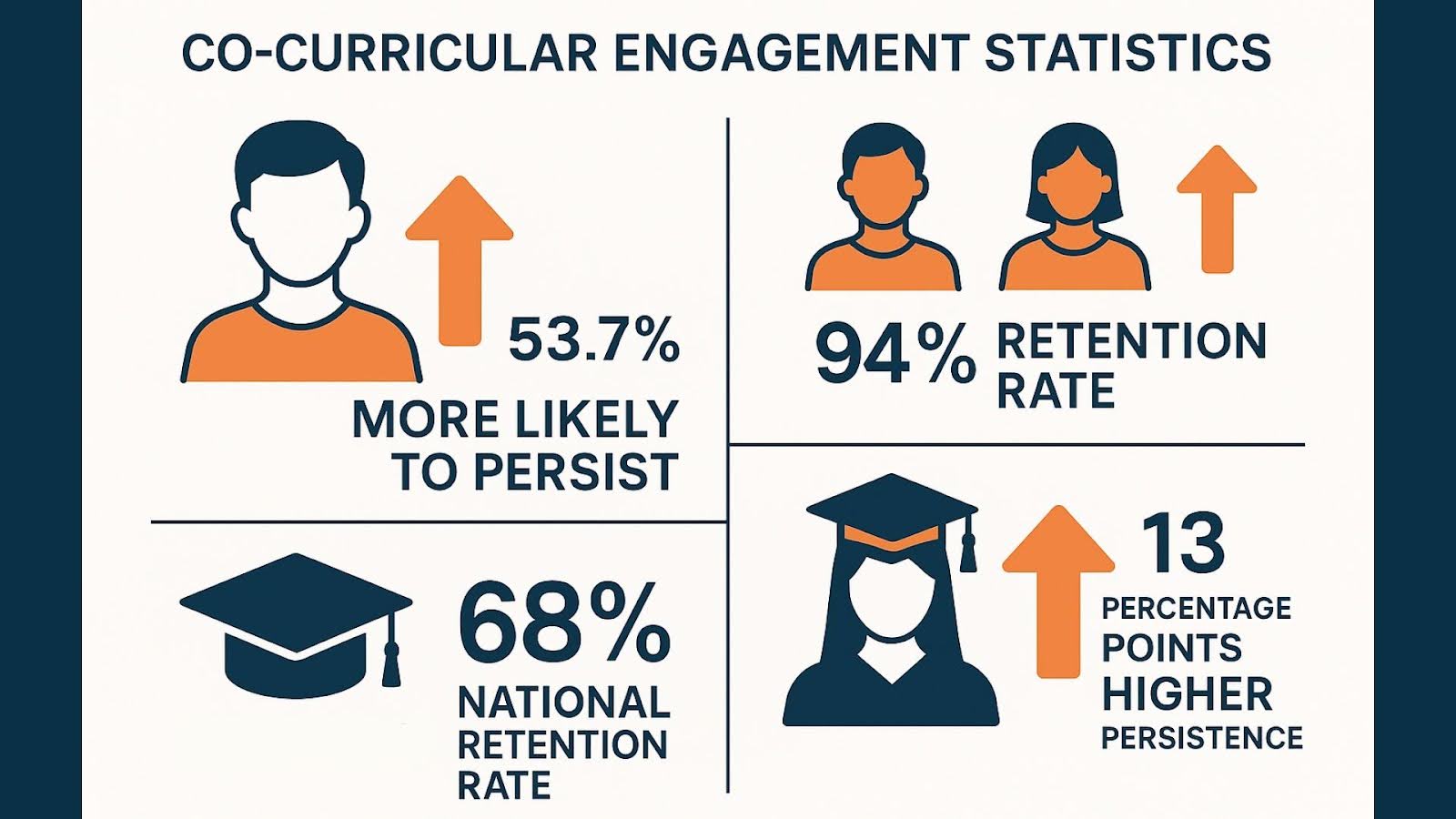
The mechanisms behind these outcomes involve multiple factors. Students who participate in co-curricular activities develop stronger connections to their institutions, build supportive peer relationships and gain confidence through skill development and leadership opportunities. These benefits create a sense of belonging that motivates students to persist through academic and personal challenges.
Frequently Asked Questions
Q: How much do co-curricular activities actually impact student retention rates? A: Research shows significant impacts. Students who participate in co-curricular events are up to 53.7% more likely to persist to the next academic year, and institutions report retention rates as high as 94% among engaged students.
Q: What types of co-curricular programs work best for different student populations? A: Traditional students benefit most from campus-based activities, leadership programs and social engagement opportunities. Non-traditional students prefer flexible, career-focused programs like professional development workshops, industry networking events and skill-building activities that align with their career goals.
Q: How can institutions measure the effectiveness of their co-curricular programs? A: Effective measurement includes tracking participation rates, academic performance correlations, retention and persistence data, skill development outcomes and post-graduation career success. Technology platforms can provide comprehensive analytics that demonstrate program impact and guide strategic improvements.
Q: What role does technology play in modern co-curricular programming? A: Technology enables personalized program recommendations, streamlined registration processes, enhanced communication, comprehensive tracking and analytics and flexible virtual participation options that accommodate diverse student needs and schedules.
Engage Your Students with Co-Curricular Programming
Co-curricular activities are an investment in student success, institutional retention goals and long-term educational outcomes. Students who engage meaningfully outside the classroom are more likely to persist, achieve academic success and develop the competencies necessary for career readiness.
The correlation between engagement and retention provides compelling justification for institutional investment in co-curricular programming. Modern Campus empowers institutions to deliver comprehensive student engagement solutions that streamline program management, enhance communication and provide the analytics necessary to demonstrate program effectiveness. Request a demo to discover how integrated technology platforms can transform your institution's approach to co-curricular programming and student success.
Last updated: November 3, 2025

